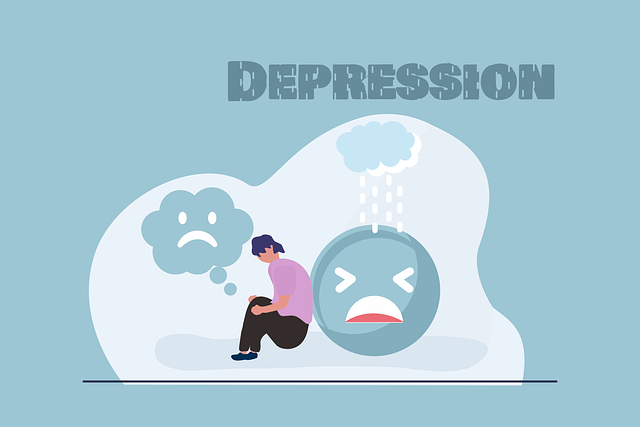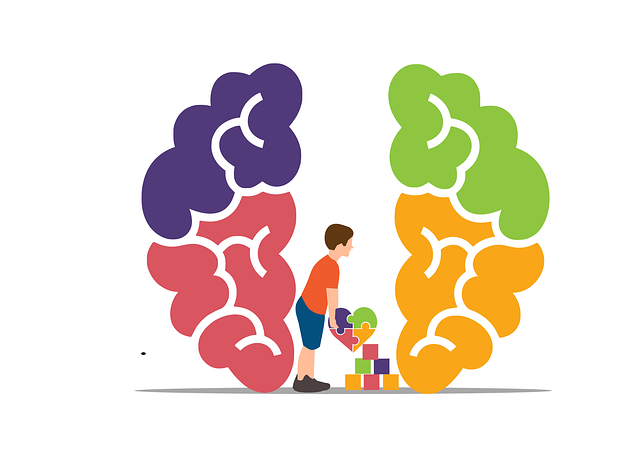Mental wellness groups like Englewood Phobias Therapy offer safe spaces for individuals with shared challenges (e.g., phobias) to connect, share experiences, and support one another. Through group dynamics, members gain insights from peers, learn tailored coping strategies, build resilience, and foster overall well-being. Englewood Phobias Therapy combines traditional therapy with a supportive community setting, using structured exercises to safely confront anxieties and boost confidence. Safe spaces are crucial, utilizing techniques like active listening, empathy, clear boundaries, and inclusive language to encourage open dialogue and non-judgmental interactions. These practices facilitate honest sharing, normalizing diverse perspectives for resilience building and empowering members through emotional well-being promotion tools like mindfulness exercises.
Mental wellness groups offer a powerful support system, fostering open dialogue and personal growth. In this article, we explore effective facilitation techniques, drawing insights from Englewood Phobias Therapy’s unique approach. We’ll delve into creating safe spaces, encouraging active participation, and facilitating progress. From understanding group dynamics to implementing strategies for overcoming barriers, these methods empower facilitators to guide members towards improved mental wellness. Discover how these practices can transform lives, with a special focus on the innovative techniques employed by Englewood Phobias Therapy.
- Understanding Mental Wellness Groups: Benefits and Dynamics
- Englewood Phobias Therapy: A Unique Approach to Group Facilitation
- Building a Safe and Supportive Environment for Open Discussion
- Facilitating Effective Communication and Active Participation
- Techniques for Encouraging Growth, Overcoming Barriers, and Measuring Progress
Understanding Mental Wellness Groups: Benefits and Dynamics

Mental wellness groups offer a unique and supportive environment where individuals with shared experiences or challenges can come together. These groups facilitate open discussions, foster a sense of community, and promote peer-to-peer support. Englewood Phobias Therapy, for instance, leverages group dynamics to help participants confront and overcome specific fears in a safe, controlled setting. By engaging in group therapy, members benefit from collective wisdom, gain insights into their conditions through others’ perspectives, and develop coping strategies tailored to their unique needs.
The benefits of mental wellness groups extend beyond individual growth. They play a pivotal role in public awareness campaigns development by normalizing conversations around mental health, reducing stigma, and encouraging early intervention. Moreover, these groups can be instrumental in depression prevention and confidence boosting. Through shared experiences, participants learn they are not alone in their struggles, fostering resilience and a sense of belonging. This collective approach to mental wellness has proven effective in enhancing overall well-being and promoting positive change in individuals’ lives.
Englewood Phobias Therapy: A Unique Approach to Group Facilitation

Englewood Phobias Therapy offers a unique and innovative approach to group facilitation, focusing on addressing specific fears and phobias within a supportive community setting. This method goes beyond traditional therapy by creating an environment where individuals can confront their anxieties in a safe and controlled manner, fostering significant personal growth. The technique involves a structured series of exercises designed to help participants manage and overcome their phobias, ultimately boosting their confidence and improving mood management skills.
By integrating community outreach program implementation, Englewood Phobias Therapy connects people from diverse backgrounds, promoting understanding and support among group members. This inclusive approach not only aids in the therapy process but also empowers individuals to become advocates for their mental wellness, encouraging peer-to-peer support networks that extend beyond the group sessions.
Building a Safe and Supportive Environment for Open Discussion

Creating a safe space is paramount when facilitating mental wellness groups. This involves establishing an environment where every participant feels secure to share their experiences and emotions openly. Group facilitators, like those at Englewood Phobias Therapy, should encourage active listening and empathy among members, fostering a culture of non-judgement. Techniques such as setting clear boundaries, maintaining confidentiality, and using inclusive language help build trust.
Additionally, incorporating structured activities and ground rules can further enhance this safety net. Social Skills Training, for instance, can aid participants in navigating interactions effectively. Regular risk assessments are crucial for mental health professionals to identify potential issues early on. Facilitators should also promote coping skills development through practical exercises, enabling members to manage stress and challenges more adeptly.
Facilitating Effective Communication and Active Participation

Encouraging open dialogue is key to successful group facilitation, especially when addressing sensitive topics like phobias. Techniques aimed at facilitating effective communication create a safe and supportive environment in which members feel empowered to share their experiences. This includes active listening, where facilitators demonstrate genuine interest and empathy, fostering a sense of trust within the group. By using reflective statements and open-ended questions, participants are guided to express their thoughts and emotions, promoting emotional well-being promotion techniques that can be particularly beneficial for those dealing with phobias.
Active participation is another powerful tool in group therapy sessions. Engaging activities, such as role-playing scenarios or group discussions on specific topics related to phobias (e.g., conflict resolution techniques), encourage members to actively engage with the material. This interactive approach not only enhances learning but also allows individuals to develop inner strength by facing their fears in a controlled setting. Through these collaborative practices, participants can gain valuable insights, build resilience, and support one another in their journey towards overcoming phobias, ultimately benefitting from enhanced communication and emotional coping mechanisms.
Techniques for Encouraging Growth, Overcoming Barriers, and Measuring Progress

In facilitating mental wellness groups, encouraging growth involves creating a safe and supportive environment where members feel comfortable sharing their experiences. Techniques such as active listening, open-ended questioning, and reflecting back emotions foster honest dialogue. By normalizing diverse perspectives and emotions, facilitators can help participants develop resilience and coping mechanisms tailored to their unique challenges. Overcoming barriers to emotional expression is crucial for group dynamics; crisis intervention guidance techniques, like providing reassurance and offering alternative viewpoints, can break down barriers caused by anxiety or past traumatic experiences, particularly in addressing Englewood Phobias Therapy topics.
Measuring progress within these groups requires a multifaceted approach. While self-reported improvements are valuable, facilitators can also assess progress through observed behavior changes, increased participation, and shifts in mood management strategies. Emotional well-being promotion techniques, such as mindfulness exercises and positive reinforcement, not only enhance group cohesion but also provide tangible tools for members to track their personal growth journeys. This dual focus on individual progress and collective support ensures a nurturing atmosphere conducive to long-term mental wellness.
Mental wellness group facilitation plays a pivotal role in enhancing individual well-being. Techniques like those explored, including the unique approach of Englewood Phobias Therapy, foster safe and supportive environments where members can openly discuss their experiences. By encouraging effective communication, active participation, and growth, these strategies help participants overcome barriers and measure progress. Ultimately, this collective journey contributes to a more vibrant and resilient mental wellness landscape.











